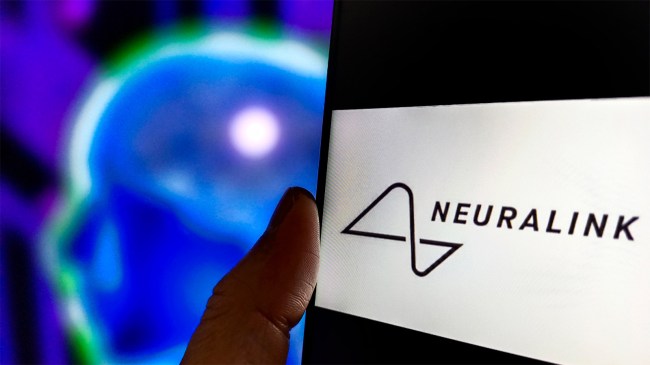Getty Image
Back in 2019, Elon Musk’s Neuralink company revealed that it had created technology that allows monkeys to control computers with their minds.
Now, in 2024, they have actually put a brain implant into a human being.
We know this thanks to a startlingly underwhelming post on X by Elon Musk himself.
The first human received an implant from @Neuralink yesterday and is recovering well.
Initial results show promising neuron spike detection.
— Elon Musk (@elonmusk) January 29, 2024
Musk also added, buried among dozens of retweets about politics and other nonsense, that the first Neuralink product is called Telepathy.
“Enables control of your phone or computer, and through them almost any device, just by thinking,” Musk wrote.
“Initial users will be those who have lost the use of their limbs.
“Imagine if Stephen Hawking could communicate faster than a speed typist or auctioneer. That is the goal.”
In 2020, Musk and his Neuralink company reported that they were developing a chip that can be implanted into humans’ brains which will allow people to stream music directly to their brains.
He had hoped to be putting chips into people’s brains by the year 2022, but there was a bit of a snafu when employees started complaining about Neuralink killing a bunch of monkeys and causing them “extreme suffering” while testing its brain chip technology.
There were also investigations conducted by the Food and Drug Administration, the Securities and Exchange Commission, the Department of Agriculture and the Department of Transportation over numerous complaints that had been made against Neuralink and a a lawsuit made against the company by a physicians group.
The company stayed the course though and in 2023 Neuralink announced it had received FDA approval and was looking for human test subjects.
That announcement came with its fair share of critics.
“Patients should have serious concerns about the safety of Neuralink’s device,” Ryan Merkley, director of research advocacy for the PCRM, told Popular Science. “There are well-documented reports of company employees conducting rushed, sloppy experiments in monkeys and other animals.”
Apparently, one patient had no such concerns because the deed is now done.

